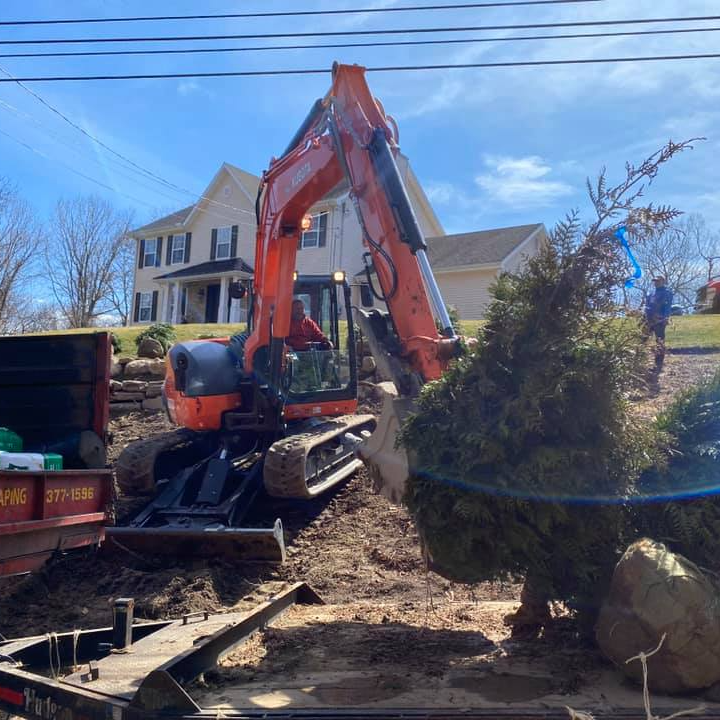Industrial Lancaster Trenching - Trenching Solutions for Businesses in Lancaster
Wiki Article
Comprehensive Excavation Methods: Understanding the Fundamentals for Success
In the world of construction and civil engineering, the importance of efficient excavation techniques can not be overemphasized. The careful preparation, specific implementation, and careful interest to information needed in excavation jobs demand a comprehensive method that includes different fundamental aspects. From initial dirt evaluation to the implementation of security steps and normal development tracking, mastering these core components is vital for attaining success in any kind of excavation venture. However, the real mastery exists not merely in understanding these basics but in seamlessly integrating them to navigate the complexities of excavation projects with skill.Recognizing Excavation Project Planning

Successful excavation tasks are constructed on the foundation of detailed and careful preparation. The initial phase of any excavation project is the planning stage, where essential decisions are made that can substantially influence the end result of the task. Throughout this phase, it is necessary to collect all pertinent information concerning the site, including topographical studies, soil composition, and any potential risks that may exist. Recognizing the project scope, timeline, and budget plan restraints is critical for producing an extensive excavation strategy that makes certain the project's success.
One trick facet of excavation project planning is the growth of a comprehensive timeline that lays out the sequence of due dates, tasks, and landmarks. This timeline offers as a roadmap for the task group, permitting them to track progress and make needed adjustments to make sure the job remains on timetable. Additionally, a distinct spending plan that makes up all expenses, consisting of devices leasing, labor prices, and products, is essential for staying clear of cost overruns and hold-ups. By meticulously considering all these aspects throughout the planning stage, excavation projects can be performed efficiently and effectively, causing successful end results.
Dirt Evaluation and Site Analysis
Conducting complete dirt analysis and website examination is a critical step in the prep work phase of any excavation task. Dirt evaluation involves establishing the make-up, framework, and buildings of the dirt at the excavation site. This information is vital for comprehending the soil's bearing capacity, wetness material, and potential for disintegration, which are essential consider figuring out the excavation techniques and equipment required for the task.Website evaluation surpasses soil analysis and encompasses a more comprehensive assessment of the overall website problems. This analysis includes recognizing any potential hazards, such as underground utilities, environmental worries, or unpredictable terrain, that can impact the excavation procedure. By completely assessing the site, job managers can develop efficient excavation approaches that focus on security, effectiveness, and ecological security.
Using sophisticated technologies like ground-penetrating radar, dirt tasting, and drone studies can enhance the precision and performance of dirt evaluation and website analysis. Investing time and resources in these preliminary actions can eventually conserve time and avoid expensive delays or problems during the excavation process.
Devices Selection and Use
Reliable excavation projects rely heavily on critical devices option and application to make sure optimum efficiency and productivity. Choosing the right equipment for the task is crucial in making best use of efficiency and minimizing downtime. Elements such as the kind of soil, depth of excavation, and job scope play a substantial duty in identifying one of the most appropriate devices for the task available.
In addition to selecting the ideal devices, proper application is crucial to task success. Operators has to be trained to deal with the devices securely and efficiently - lancaster excavation. Regular upkeep checks and prompt repairs help protect against malfunctions and guarantee consistent performance throughout the project
Safety Procedures and Laws Conformity
In the realm of excavation tasks, focusing on safety procedures and conformity with guidelines is paramount to making certain a protected and lawfully audio operational environment. Precaution include a series of techniques, consisting of conducting comprehensive website analyses, applying appropriate signage and barriers, and providing appropriate safety and security training for all personnel included in the excavation process. Adherence to guidelines, such as OSHA requirements in the USA, guarantees that the excavation task meets the necessary standards to secure employees, spectators, and the surrounding atmosphere.
Surveillance Development and Adjusting Methods
How can predict supervisors successfully track the development of excavation jobs and adjust their approaches as necessary to enhance results? Monitoring progress is essential for making sure that excavation projects remain on track and satisfy due dates. Project supervisors can utilize various tools and strategies to track progress, such as daily report card, routine website assessments, and progressed tracking technologies like drones and general practitioners tracking systems. By continually checking the project's improvement, managers can recognize any kind of possible hold-ups or concerns beforehand and take proactive steps to resolve them.
Verdict
In conclusion, mastering the fundamentals of detailed excavation techniques is important for the success of any type of job. By recognizing task planning, assessing dirt and website problems, choosing proper equipment, following security guidelines, and checking progression, project supervisors can make sure a effective and smooth excavation process. Implementing these approaches will certainly lead to successful outcomes and reduce potential risks or obstacles throughout the excavation job.
best site The preliminary stage of any excavation project is the preparation phase, where critical decisions are made that can substantially impact the end result of the task. Comprehending the job budget, extent, and timeline restraints is essential for creating a comprehensive excavation strategy that guarantees the job's success.
How can project supervisors successfully track the development of excavation projects and adjust their strategies appropriately to maximize end results? By closely keeping an eye on development and being willing to adjust approaches, task managers can enhance the overall success of excavation tasks.
By comprehending task planning, assessing dirt and website problems, selecting suitable devices, conforming with safety and security guidelines, and monitoring progress, task managers can guarantee a reliable and smooth excavation procedure.
Report this wiki page